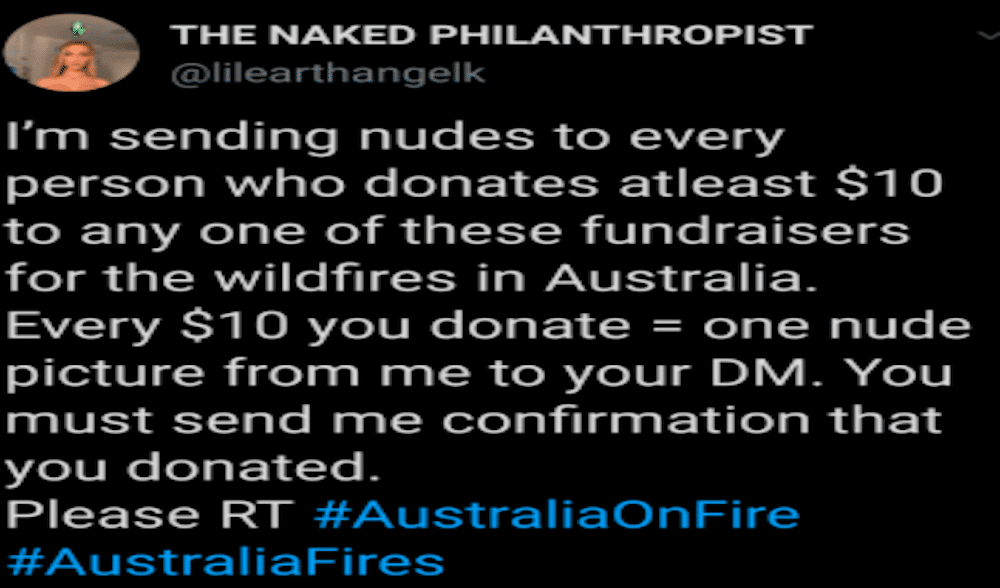ROSE RTEIMEH WRITES — A world in which it is possible to receive a naked picture of a well-known online model in exchange for a donation to charity is very 2020.
Kaylen Ward, a 20-year-old influencer and online sex worker, started a fundraiser on Twitter for multiple Australian fire relief charities. Her post announced that for every $10+ donated to the select charities, a nude would be DM-ed to said contributor.
At first glance, this may seem unconventional and odd, but take a step back and you can see how normal this is relative to the culture we have created online. Unattainable beauty standards are forced on women every day, through the entertainment and advertising industries as well as on social media platforms. These beauty ideals have social and monetary weight. Women feel compelled to conform to and, in some cases, monetize those ideals, as they are inescapable.
Which leads us to the creation of “influencers”/online models, for example—people whose look and lifestyle you want, and who get paid to promote companies’ products. Ward’s overall appeal as a model is similar to that of many Instagram influencers, but her status as a sex worker is what polarized some users and platforms.
What Ward actually did, though, was different, and even, arguably, honorable: She donated her “product” to a charitable cause. And though the mean backlash involved the inevitable slut-shaming, she also raised around $1 million worth of donations— indicating overwhelmingly positive feedback.
Despite all this support from everyday social media users, not all platforms responded kindly. And although Ward’s transactions were conducted solely on Twitter, Instagram shut down her personal account when word of her campaign got there. This was done under the guise of ‘violating guidelines,’ which has been a consistent reprimand Instagram has enforced on online sex worker users. Meaning, she (and other online sex workers) disrupt the atmosphere of the platform (which consists mostly of company-friendly Instagram models/influencers).
Oddly, nude photographs are in direct violation of Instagram guidelines, which is puzzling, if not hypocritical, given that most influencers thrive off of advertising and the sale of sex fantasies. Then Instagram capitalizes on the concept of influencers who are almost sexy, yet bans those who offer the more real thing. How does that make any sense?

